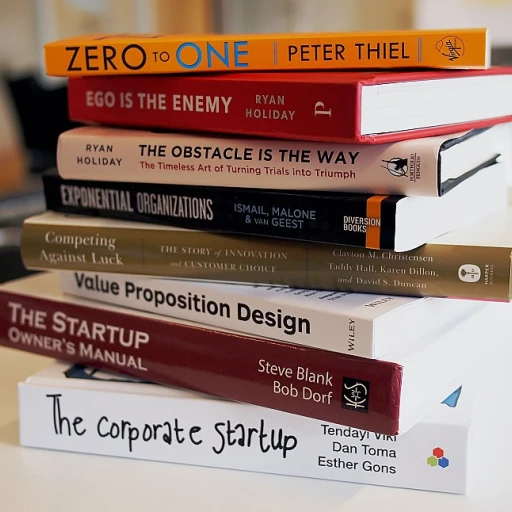
Understanding the Evolving Landscape of Manufacturing
Shifting Dynamics in Industrial Manufacturing
The manufacturing landscape is witnessing a profound transformation, altering the way companies approach staffing. With the ever-evolving demands of the industrial sector, understanding these changes is crucial for effective workforce management. The use of advanced technologies and shifting consumer expectations has redefined the operational framework of the manufacturing industry. From automation to data-driven processes, manufacturers are at the forefront of adopting innovations to stay competitive. However, this progression also brings substantial challenges in labor supply and skills acquisition.
A major concern for manufacturing companies today is the widening skills gap. As new technologies emerge, there's a surging demand for skilled workers who can handle sophisticated machinery and equipment. While traditional roles are diminishing, new job profiles requiring advanced skills are on the rise. Consequently, businesses are compelled to rethink their staffing strategies to keep up with these trends. The necessity for a flexible workforce has given rise to temporary staffing solutions and partnerships with staffing agencies that specialize in manufacturing staffing.
Furthermore, the global supply chain's intricacies present additional hurdles for workforce management. With industrial production often spread across borders, aligning staffing needs with production capabilities requires a nuanced understanding of both domestic and international labor markets. Companies must navigate these complexities to ensure they have the right talent at the right time to meet production goals. This dynamic environment calls for strategic staffing solutions focused on long-term growth and sustainability.
To address these challenges, integrating the latest recruitment technologies and data analytics can lead to more efficient staffing processes. By utilizing insights from data, businesses can better predict labor demands and streamline hiring processes. This data-centric approach not only helps in identifying potential candidates but also aids in planning for future workforce needs.
The manufacturing industry's rapidly shifting terrain, accentuated by technological advancements and changing labor dynamics, underscores the importance of adapting staffing strategies to remain competitive. As the sector continues to evolve, companies that successfully embrace these changes will thrive amidst the challenges.
Identifying Key Skills for Future Manufacturing Roles
Pinpointing Essential Abilities for the Changing Manufacturing Scene
The manufacturing industry has experienced significant shifts due to technological advancements and evolving market demands. This transformation calls for a focused approach in identifying the skills that will be pivotal for future roles. As manufacturers aim to address staffing needs, understanding these skills can guide effective talent acquisition strategies. The following skills are particularly crucial:- Technical Proficiency: As automation and digitization become standard, manufacturers seek workers who are proficient in advanced machinery and software. This technical know-how is essential for maintaining efficiency and innovation within industrial settings.
- Problem-Solving Abilities: The dynamic and often unpredictable nature of the manufacturing environment demands skilled workers who can devise creative solutions to challenges as they arise.
- Adaptability: With the continuous evolution of manufacturing processes, the ability to navigate and embrace new technologies swiftly is indispensable. Employees ready to learn and grow alongside technology advancements are assets to any manufacturing company.
- Collaboration: The demand for teams that work effectively in diverse and inclusive environments underscores the need for workers who excel in collaborative roles, ensuring smooth operations across the supply chain.
- Leadership and Decision-Making: As manufacturing roles become more complex, leadership skills at various organizational levels are vital for guiding teams and driving strategic initiatives.
Strategies for Effective Talent Acquisition
Developing Targeted Hiring Approaches
As the manufacturing industry continues to evolve, addressing staffing needs requires a proactive and strategic talent acquisition approach. Companies must adapt to emerging trends and challenges to secure the skilled workers necessary for sustainable growth. The demand for specialized skills in industrial manufacturing is at an all-time high, resulting in a competitive job market where manufacturers need to stand out.One effective strategy is to leverage data and analytics in recruitment efforts. By analyzing labor market data, businesses can identify skill gaps and anticipate future staffing needs. This information helps in tailoring job descriptions and recruitment campaigns to attract the right candidates. Furthermore, understanding the current supply chain trends allows companies to better manage workforce demand and supply.
Partnering with staffing agencies can also offer staffing solutions to navigate the complexities of workforce management. An experienced staffing partner can provide access to a pool of pre-qualified candidates, expedite the hiring process, and even offer insight into industrial staffing trends. Temporary staffing options are particularly beneficial in handling fluctuations in production demand without committing to long-term hires.
Incorporating Creative Engagement Techniques
In addition to leveraging traditional hiring strategies, companies must adopt creative ways to boost employee engagement. By fostering a positive workplace culture, manufacturers can not only attract but also retain top talent. Engaging existing workers often results in a more motivated and productive workforce, making it easier to meet business objectives.For practical tips on enhancing engagement without breaking the bank, visit this insightful article on creative ways to boost employee engagement on a budget. It offers actionable strategies to foster a supportive work environment, which is essential in today’s dynamic industrial sector.
Leveraging Technology in Recruitment
Utilizing Advances in Recruitment Technology
In the fast-paced manufacturing industry, leveraging the latest recruitment technologies can significantly enhance talent acquisition efforts. By embracing these advances, companies can streamline the hiring process, thereby addressing industrial staffing challenges and meeting the evolving demands of the market.- AI-Powered Recruitment: Artificial intelligence is transforming how staffing agencies and manufacturing companies identify and engage with skilled workers. AI can help sift through resumes, match talent with specific job requirements, and predict job seeker behavior.
- Applicant Tracking Systems (ATS): Implementing a robust ATS can improve workforce management by automating tasks such as resume screening and interview scheduling. This system provides a centralized database that supports long-term hiring strategies.
- Data-Driven Decisions: The use of big data analytics in staffing helps manufacturers anticipate labor market trends and develop effective staffing solutions. Analyzing labor data can reveal insights into skills gaps and assist in forecasting future needs.
- Virtual Reality (VR) and Augmented Reality (AR): In industrial manufacturing, VR and AR training sessions can prepare new hires for complex tasks in a risk-free environment, enhancing workforce adaptability.
Building a Diverse and Inclusive Workforce
Creating Opportunities Through Diversification
In recent years, there's been a growing recognition of diversity and inclusion as key drivers of innovation and growth within the manufacturing industry. By building a diverse workforce, manufacturers can tap into a wider range of perspectives and ideas, which can, in turn, lead to more innovative solutions and improved business outcomes. Manufacturing companies face the challenge of closing the skills gap where traditional labor sources may not meet evolving demands. By prioritizing diversity in staffing, businesses can broaden their talent pool, allowing them to address skills shortages by tapping into underrepresented worker groups.Implementing Inclusive Hiring Practices
Inclusive hiring practices are fundamental to building a diverse workforce in the manufacturing sector. Companies should consider the following strategies to make their recruitment processes more inclusive:- Standardized Hiring Procedures: Implement consistent evaluation criteria to ensure fair hiring decisions and reduce unconscious bias.
- Diverse Candidate Sourcing: Partner with staffing agencies specializing in industrial staffing and light industrial roles that focus on diverse talent pools.
- Outreach Programs: Engage with community organizations and educational institutions to connect with minority and underrepresented populations.
Fostering an Inclusive Workplace Culture
Creating an inclusive culture goes beyond recruitment. It requires ongoing efforts within the company:- Training and Education: Educate workers on the benefits of diversity and inclusion while addressing related challenges.
- Open Communication: Promote an open dialogue environment where all employees feel valued and empowered to share their ideas.
- Mentorship Programs: Establish mentorship opportunities to support the professional growth of diverse talent and help them transition into leadership roles.
Training and Development for Workforce Adaptability
Enhancing Workforce Adaptability through Training
In the ever-evolving landscape of the manufacturing industry, companies face the challenge of keeping their workforce adaptable to new trends and technologies. As the demand for skilled workers grows, manufacturers must prioritize training and development to bridge the skills gap and ensure long-term success.
Training programs are essential for equipping workers with the necessary skills to meet the demands of modern industrial manufacturing. By investing in workforce development, companies can enhance productivity and maintain a competitive edge in the labor market. Here are some strategies to consider:
- Continuous Learning Opportunities: Encourage a culture of continuous learning by offering workshops, seminars, and online courses. This helps workers stay updated with the latest industry trends and technologies.
- Partnerships with Educational Institutions: Collaborate with local colleges and vocational schools to create tailored training programs that align with the specific needs of the manufacturing industry.
- On-the-Job Training: Implement on-the-job training initiatives that allow workers to gain hands-on experience while learning new skills. This approach can be particularly effective in light industrial and manufacturing staffing.
- Mentorship Programs: Establish mentorship programs where experienced workers can guide and support new hires, fostering a supportive work environment and facilitating knowledge transfer.
- Utilizing Staffing Agencies: Partner with staffing agencies to access temporary staffing solutions that can provide skilled workers for short-term projects, helping to manage workforce fluctuations effectively.
By focusing on training and development, manufacturing companies can not only address current staffing challenges but also prepare their workforce for future demands. This proactive approach ensures that businesses remain resilient and adaptable in a rapidly changing industrial landscape.













